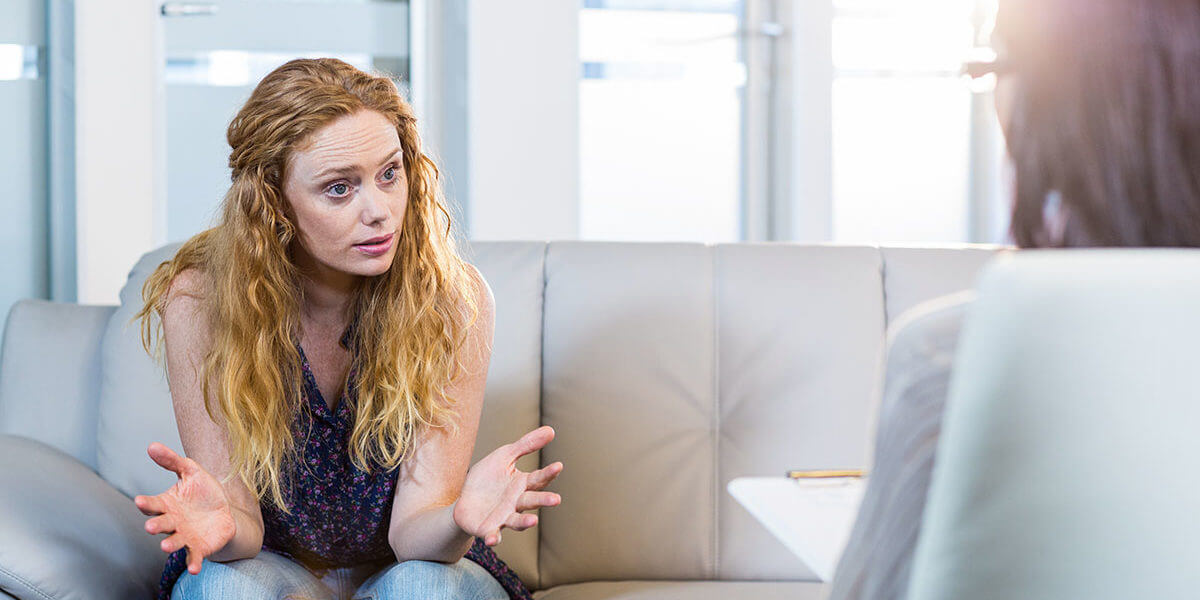OCD, or obsessive-compulsive disorder, is an anxiety disorder that includes obsessive thoughts and compulsive behaviors. Although their thoughts and behaviors may seem unreasonable, they cannot resist the urges or stop behaviors. These rituals provide short-term relief, leaving a woman feeling anxious and out of control.
Often, women may turn to drugs or alcohol to redirect obsessive thoughts and control their actions. Unfortunately, symptoms return and persist after the effects of the substances are long gone.
At Crossroads, we understand that OCD is a treatable disease that can be exacerbated when drugs and alcohol are introduced. Our compassionate, caring professionals have developed treatment options to help women who struggle with OCD and substance use disorder create healthy coping skills. These mechanisms can help them regain control of their lives and live life happily in recovery. Learn more about the treatment options available to you or a woman you love through the online form or call 877.978.1667.
Facts About Obsessive-Compulsive Disorder
Obsessions are involuntary, often unreasonable, thoughts, images, or impulses that frequently reoccur. Unfortunately, these obsessive thoughts often coincide with disturbing emotions such as fear, doubt, disgust, and perfectionism. For many women who experience these emotions as part of the disorder, the use of substances temporarily relieves them of these negative feelings. These substances give them a fleeting sense of relief, self-worth, and confidence. However, these euphoric feelings that the drugs trigger can be addictive on their own. Additionally, their bodies become dependent on the drug or alcohol generating them.
Obsessions typically lead to compulsions. Some examples of OCD thoughts and behaviors include:
- Fear of exposure to bacteria or viruses leads to compulsive cleaning and hand washing
- Preoccupation with religious topics
- Fear of getting sick or of losing a loved one to illness or injury leads to invasive worrying
- Intrusive images of sexual acts
- Intrusive thoughts of harming others or oneself
Compulsions are behaviors or rituals that a person feels driven to perform repeatedly to dispel obsessive thoughts. In many cases, the constant repetition of rituals makes a regular routine difficult to sustain.
OCD and Substance Use Disorders Are Common
Some experts estimate that nearly 20% of those with obsessive-compulsive disorders also have a substance use disorder. Unfortunately, although the intent is to alleviate symptoms or escape, substances often make symptoms of OCD worse and ultimately increase the problems associated with the disorder.
Drug and alcohol dependence and addiction are a dangerous combination as a woman with OCD begins to rely on substances to navigate her everyday life.
Getting Help for Dual Diagnosis at Crossroads
Receiving the correct diagnosis is the first step in healing and recovery from OCD. An experienced mental health professional will evaluate the signs, symptoms, and behaviors a woman suspected to have OCD and substance use disorder displays. We can then suggest an appropriate evidence-based treatment program to get her on the road to recovery. However, it is not enough to solely treat the signs and symptoms of OCD. An effective treatment plan must also include therapies to address the substance use disorder; otherwise, the woman risks relapse and loss of any significant recovery gains.
At Crossroads, we recognize that treating co-occurring disorders provides women with valuable, life-changing opportunities to overcome substance use, quiet obsessive thoughts, and hinder compulsive behaviors, leading to a successful life in recovery. While there is no cure for OCD and substance use disorder, both are treatable mental health disorders. The caring professionals at our women’s residential treatment center have developed a broad range of holistic and evidence-based treatment options. Our services help women develop coping skills to manage their symptoms and regain control of their lives. For instance, our services include:
We empower women to remember who they wanted to be and get the help they need to overcome their co-occurring disorders. If you or someone you know suffers from obsessive-compulsive disorder and substance use disorder, then Crossroads may be the right treatment center for you. Call 877.978.1667 or schedule an appointment through the online form to learn more.


















